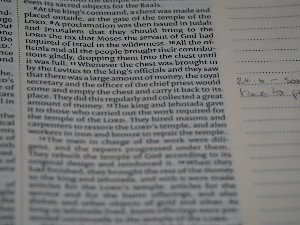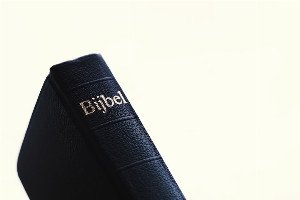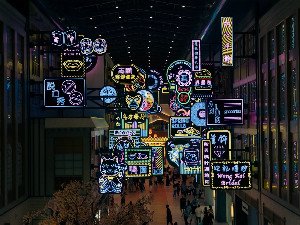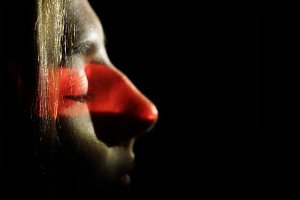Dawid Przywalny
Comic Books as the Modern American Mythology
Introduction
Comic books as the modern american mythology. Discover how comic books serve as modern American mythology, reflecting the nation's history, societal shifts, immigration, wars, censorship, and key events from the Cold War to 9/11.
Abstract
This article describes comics as a modern form of mythology. Comic book artists not only adapt well‑known American myths, such as the power of money (Batman) or America as a home for immigrants (Superman), but they also co‑create new ones along with other cultural works. For one of the characteristics of mythology is taming, explaining and commenting on reality in the form of fantastic tales. All of American history and the image of society can be found in comics. The lives of immigrants in the early twentieth century and experiences of the World Wars were illustrated in short comics that appeared in the daily press. The events of the Cold War such as the arms race and the Vietnam War were portrayed through the eyes of famous characters such as the Fantastic Four and Iron Man. Comics were also the target of Puritan society. Just like the Hays Code concerning cinema, the system of self‑censorship called the Comics Code limited artistic freedom and forced some artists to create underground. In turn, the counterculture of the 1960’s led to a gradual liberalization, allowing the adventures of African and Afro‑American superheroes to be published. Likewise, the economic crisis of the 1970s, problems in American society and the Reagan era are reflected in such comics as The Watchmen and The Dark Knight Returns. Surprisingly, the economic boom of the 1990s brought about a creative crisis and financial troubles among publishers. Last but not least, the events of 9/11 gave comic book stories new power when superheroes began to fight against terrorists and to explore the issue of what is more important: national security or civil liberties. All of this indicates and highlights that the history of American comic books is closely linked with the history of the American nation.
Review
This article, "Comic Books as the Modern American Mythology," proposes a compelling thesis that American comic books function as a contemporary form of national mythology. The abstract effectively articulates this central argument by positing that comic book artists not only re-interpret established American myths—such as the power of wealth exemplified by Batman or the immigrant's journey personified by Superman—but also actively participate in the creation of new cultural narratives. It frames mythology as a crucial mechanism for "taming, explaining, and commenting on reality in the form of fantastic tales," thereby setting the stage for a comprehensive exploration of comics' role as a cultural mirror. A significant strength evident in the abstract is the impressive historical scope and thematic breadth the article promises to cover. It traces the intertwined development of American comics and the nation's history across the 20th and early 21st centuries, from the experiences of early immigrants and the World Wars to the complexities of the Cold War, the counterculture movement, and post-9/11 anxieties. The abstract highlights the medium's responsiveness to societal shifts, referencing key historical events and iconic characters (e.g., Fantastic Four, Iron Man, Watchmen, The Dark Knight Returns). Furthermore, the inclusion of the Comics Code and the subsequent liberalization signals a nuanced understanding of the medium's internal struggles and evolution within a dynamic cultural landscape. Overall, the abstract suggests an article that will make a valuable contribution to the fields of cultural studies, American history, and media analysis. By meticulously linking specific comic book narratives and their publication history to major socio-political and economic developments, the piece appears poised to convincingly demonstrate the profound and enduring connection between American comic books and the identity of the American nation. This promises to be an insightful and engaging examination of how popular culture not only reflects but actively shapes and interprets collective national experiences.
Full Text
You need to be logged in to view the full text and Download file of this article - Comic Books as the Modern American Mythology from Ad Americam .
Login to View Full Text And DownloadComments
You need to be logged in to post a comment.
Top Blogs by Rating
Beyond the Stereotype: Unpacki...
By Sciaria
The Spiritual Shelf Life: Navi...
By Sciaria
Big Data's Echo Chamber: The U...
By Sciaria
Favorite Blog
Unveiling the Hidden Journeys:...
By Sciaria
Big Data's Unintended Conseque...
By Sciaria
'Um' Isn't Just a Stumble: Wha...
By Sciaria
Related Research
Estimasi sumberdaya endapan terukur nikel laterit dengan menggunakan metode inverse distance weighting
Breaking barriers: a new era in arabic language learning through digital platforms
A translation study of the meaning and aesthetics of drama subtitles of when we were young (人不彪悍枉少年) as literary works on wetv channel indonesia: a review of literary translation theory
Share
Notice Board
- ALIH FUNGSI LAHAN SAWAH MENJADI KEBUN DURIAN MONTONG TERHADAP PERUBAHAN SOSIAL EKONOMI PETANI DI DESA MAYAJAYA KECAMATAN PAMONA SELATAN KABUPATEN POSO
- KONSEP KAFA’AH SYEKH MUHAMMAD ARSYAD AL-BANJARI PERSPEKTIF KONSTRUKSI SOSIAL PETER L BERGER
- THE NORTHERN COAST OF THE BLACK SEA AS A “FRONTIER” AND ITS ROLE IN SHAPING THE SOCIETY IN UKRAINIAN HISTORY IN THE 16-18TH CENTURY





